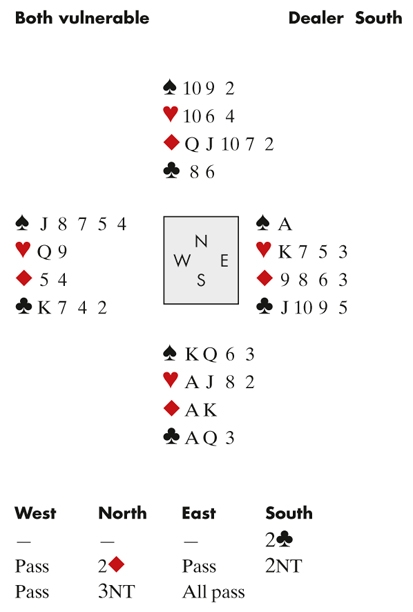I hope Zia Mahmood will forgive me. It’s not often I come across a contract that he has failed to make while his opponent in the other room has succeeded — and I can’t resist writing about it. The occasion was the final of this year’s Vanderbilt Cup, the hugely prestigious American knock-out teams event. What it goes to show is not that Zia took an inferior line (heaven forfend!), but what a difference an opening lead can make. That single card can determine the entire fate of a contract.
Against Zia, West (Marc Jacobus) led the ♦8. If trumps are 2-2, and West has no immediate ruff, there is only a trump and a heart to lose. But that diamond looked very much like a singleton: if Zia touched trumps, East might fly in with the ♣A to give West a ruff. So Zia played for spades to be 3-3. He cashed the ♠K and ♠A, and now tried a third spade, discarding his losing heart. West ruffed — one down.
In the next room, after the same auction, West (Agustin Madala) led the ♠J. If it was a singleton there was no way to make the contract — so declarer, Eric Greco, played him for a doubleton. But still, if you can’t discard a heart on the third spade, doesn’t it look like you might have to lose two trumps and a heart? Greco visualised the opponents’ distribution perfectly and found an ingenious solution — he won the opening lead with dummy’s ♠Q and played the ♣2. East was caught by Morton’s Fork in the trump suit! If he ducked, declarer could win with the ♣K and switch to spades, discarding his losing heart. If East flew in with the ♣A to cash a heart — as he actually did — declarer would lose only one trump. Bravo Greco. But I doubt Zia feels too bad — he and his team (Lavazza) went on to win the Cup.






Comments